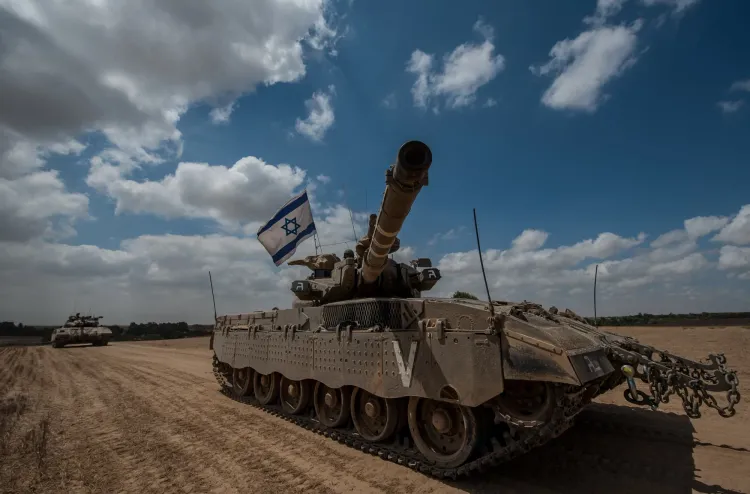Is Israel Preparing for an Unprecedented Assault on Khan Younis?

Synopsis
Key Takeaways
- Evacuation orders issued for Khan Younis ahead of military action.
- Targeted towns include Bani Suheila, Abasan, and Al-Qarara.
- Humanitarian concerns escalate as conflict continues.
- Israel rejects ceasefire proposals, emphasizing military objectives.
- Witkoff framework seeks to balance hostages and ceasefire discussions.
Jerusalem, May 26 (NationPress) - The Israeli military has issued a critical evacuation notice for the inhabitants of Khan Younis in the southern Gaza Strip, warning of an impending "unprecedented attack".
This evacuation directive encompasses three towns within the Khan Younis Governorate: Bani Suheila, Abasan, and Al-Qarara. Avichay Adraee, a spokesperson for the Israeli military, shared the announcement on the social media platform X, indicating that the assault will focus on militant infrastructure.
Adraee emphasized, "The Khan Younis Governorate is regarded as a perilous combat zone and has received multiple warnings." He urged residents to evacuate immediately toward the al-Mawasi area.
It's important to note that the evacuation order does not extend to Al-Amal and Nasser hospitals, as reported by Xinhua news agency. The Khan Younis region has already endured heavy Israeli bombardment in recent days, including a strike over the weekend that tragically killed nine of a pediatrician's ten children.
Israel has frequently issued evacuation notices throughout the enclave, compelling the majority of Gaza's 2.2 million residents to flee repeatedly amid the ongoing 19-month military campaign.
In a related development, Israel has dismissed a new proposal intended to cease its military actions in Gaza and facilitate the release of ten additional hostages, as reported by the state-owned Kan TV.
A senior official from Israel's negotiation team informed Kan TV that US mediators presented this proposal overnight. It encompassed the release of five living hostages and five deceased individuals, the facilitation of humanitarian aid into Gaza, a 70-day ceasefire, and negotiations toward a lasting ceasefire.
The official characterized Israel's rejection of the deal as a "surrender to Hamas."
Israel is advocating for the so-called Witkoff framework, a proposal from Israeli Prime Minister Benjamin Netanyahu introduced in early March, which calls for the release of additional Israeli hostages in exchange for a 50-day truce and a commitment to discuss a longer ceasefire. It notably does not address the withdrawal of Israeli forces or the release of Palestinian prisoners, two critical demands of Hamas.
Another round of indirect discussions between Israel and Hamas, aimed at concluding Israel's 19-month military operations and securing the release of 58 remaining hostages held in Gaza, concluded last Thursday after Netanyahu recalled the delegation, according to Xinhua news agency.
Israel terminated a three-phase ceasefire agreement in March, following two months of truce during which Hamas released 33 Israeli hostages, but refused to proceed to the second phase and resumed its offensive in Gaza.
Recently, Philip Lazzarini, head of the United Nations Relief and Works Agency for Palestine Refugees (UNRWA), called for a "meaningful and uninterrupted" flow of aid into the Gaza Strip.
Israel has long contended that much of the international assistance intended for Gazans has been misappropriated by Hamas, the governing authority in the strip, with tacit approval from the UN relief agency for Palestinian refugees. The United Nations has strongly refuted these claims.









